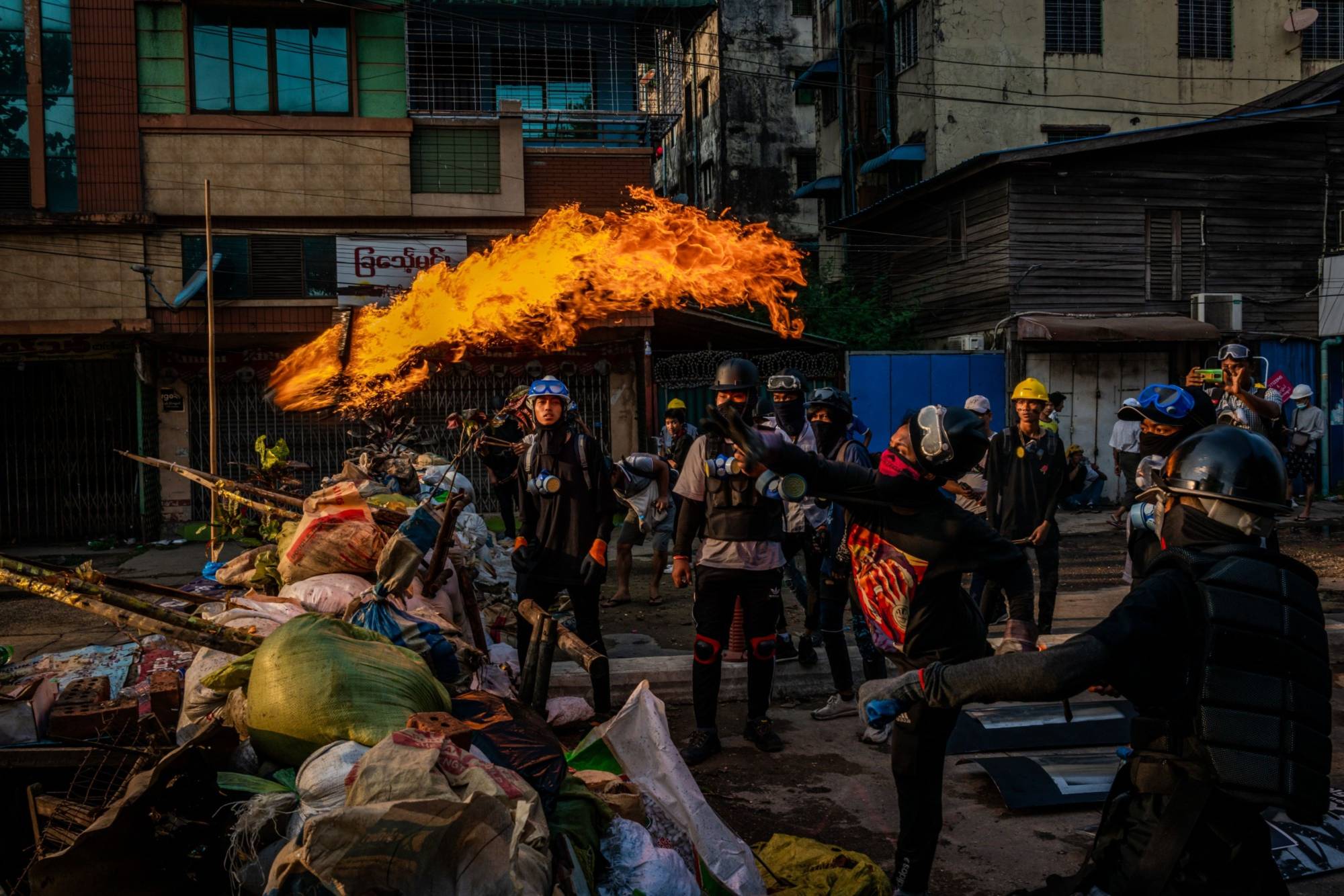With a tea shop right next to key protest zones in Myanmar’s biggest city, Soe is never quite sure whether he should keep the business open.
If protesters enter to evade authorities, the 43-year-old risks getting shot, arrested or having his property destroyed as the military and police hunt them down. But if he turns away fleeing demonstrators, he may face a backlash on Facebook and a boycott of his tea shop, among hundreds in Yangon that have long served as de facto community centers.
"Now we can’t open our shop on a daily basis but we have to pay regular rental fees, municipal fees, labor wages,” said Soe, using only his first name because of concerns for his personal safety. "Many tea shop owners in Yangon are not sure how long they’ll be able to survive if this crisis continues.”



















With your current subscription plan you can comment on stories. However, before writing your first comment, please create a display name in the Profile section of your subscriber account page.